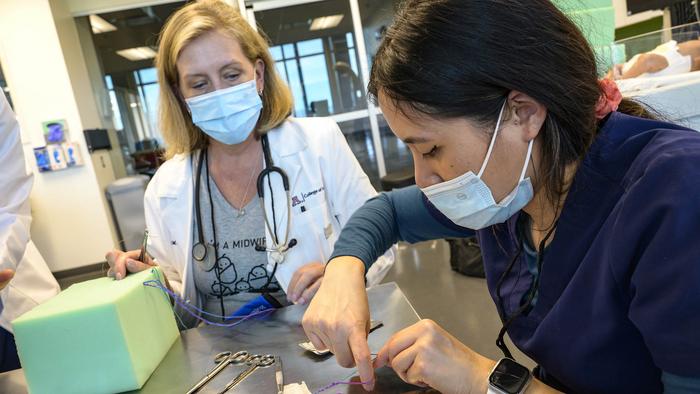The University of Arizona College of Nursing was one of 50 institutions nationwide to receive a Health Resources and Services Administration grant to increase the number and diversity of Doctor of Nursing Practice students in clinical rotations at Federally Qualified Health Center partners in southern Arizona.

Credit: UArizona Health Sciences
The University of Arizona College of Nursing was one of 50 institutions nationwide to receive a Health Resources and Services Administration grant to increase the number and diversity of Doctor of Nursing Practice students in clinical rotations at Federally Qualified Health Center partners in southern Arizona.
The project will use the $2.6 million in funding from the HRSA’s Advanced Nursing Education Workforce Program to deploy immersive managed practice adaptable clinical training, or IMPACT, starting in the spring semester of 2024.
The grant will support students pursuing doctorates in the specialty areas of family medicine, psychiatric mental health and nurse-midwifery who are being prepared to provide primary care services, mental health and substance use disorder care, and maternal health care for the diverse populations in southern Arizona’s rural, border and medically underserved communities.
“Students will receive $25,000 to support their clinical year,” said project director Allen Prettyman, PhD, who developed the grant proposal with Lindsay Bouchard, DNP. “That covers books, tuition and expenses to decrease barriers to travel and engage with rural and underserved communities.”
The project has two objectives: to provide 12 months of immersive clinical training rotations for diverse cohorts of up to 19 students per year to support workforce development; and to support IMPACT health care partners in developing and retaining providers and preceptors from diverse backgrounds that align with their community population.
“Many students have financial responsibilities and are still working as they complete the DNP program,” Bouchard said. “This funding will allow them to focus on their studies and clinical rotations more fully. The grant will also help us establish a longitudinal clinical placement model. Students will be with the same clinical partner for 12 months, providing a stable clinical learning environment that promotes clinical and academic success.
“The grant funding also provides financial support for our community partners,” Bouchard added. “We are grateful to have established and grown a network of clinical partners through this grant.”
This work is funded by the Health Resources and Services Administration, an agency of the U.S. Department of Health and Human Services, under award no. 1T94HP49356.




